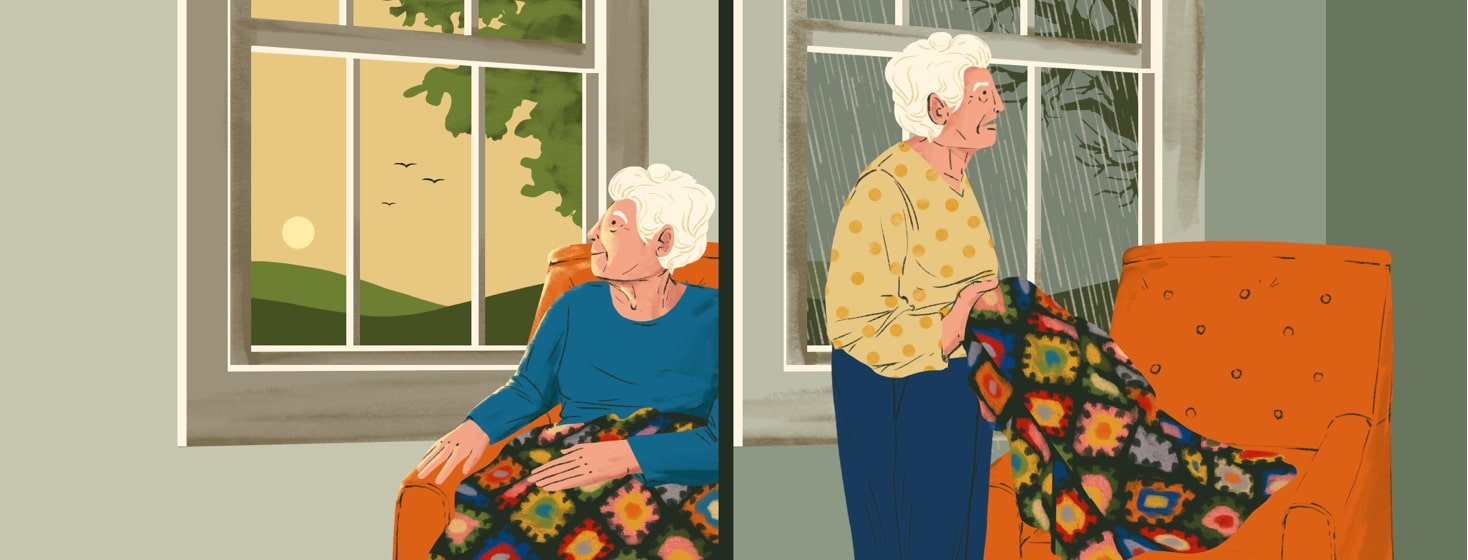Balancing the Good and Bad Days: Changes in Alzheimer's Symptoms
Alzheimer's disease is known as a progressive disease, but that doesn't mean there aren't changes daily that might seem to fluctuate. We have noticed the phenomenon of "good days and bad" in our family's experience with my grandma's symptoms.
Though they haven't been documented nearly enough in those web pages that nearly all of us read early on, after a family member's diagnosis! In fact, it seems to be under-considered even in the research about Alzheimer's disease, per some investigators themselves!1
Fluctuating cognition
Cognitive and symptomatic fluctuations are in no way unrecognized when it comes to Alzheimer's disease. However, this has been more thoroughly investigated in other forms of dementia, namely Lewy body dementia, in which "[f]luctuating cognition (FC) is a core feature of dementia with Lewy bodies."2
I found one study article aptly titled "Good days and bad days in dementia." The authors "aimed to characterize symptom fluctuation in patients with Alzheimer's disease and mixed dementia."1 The authors found in reviewing medical charts of 52 women with mild dementia, typically Alzheimer's disease, aged 39 to 91, living in the community. "Good days" and "bad days" were used as measures of reporting symptoms or symptom fluctuations.
The study notes stated, "Good days were typically associated with improved global cognition, function, interest, and initiation. Bad days were associated with frequent verbal repetition, poor memory, increased agitation, and other disruptive behaviors."1
Changes in Alzheimer's symptoms
Does that sound familiar to you? Because it does to me!
Of course, being a qualitative review, this doesn't help us understand what causes these good and bad days. However, it notes that understanding the causes of these fluctuations may help improve the quality of life for patients and caregivers.1
This or That
Have you ever experienced fluctuating symptoms in yourself or your loved?
What causes these changes?
Well, that is the golden question, isn't it? After all, if we know the cause, we can help keep things a bit more stable or predictable. My initial hunch was that, just as with all of us, various factors can promote good days or bad days. After all, if you slept well, the sun was shining, and you got to do something you enjoyed, you're probably more likely to have a good day, with or without Alzheimer's disease.
An international study confirmed my suspicions. Alzheimer's Research UK Head of Research, Dr. Rosa Sancho, stated that sleep quality and mood can affect cognitive performance, whether or not someone has dementia.
That same study also suggests that seasons may also play a role. Older adults who were assessed for memory and cognitive skills in the summer and fall tended to have better scores than those assessed in winter and spring.3
The statement continues by noting that researchers found seasonal fluctuations in biomarkers of Alzheimer's disease in participants' spinal fluid.3
This is far more than mere observational evidence, but it still leaves much to learn about how seasonality and myriad other factors affect Alzheimer's symptoms. It also brings us a bit closer to understanding how weather, light, and other factors may play a role in fluctuations in Alzheimer's symptoms.
Thoughts on fluctuating Alzheimer's symptoms
It may go without saying, but I think at least some of the fluctuations we see in symptoms of people with Alzheimer's disease may be amplifications of the mood or day-to-day changes we all experience, which may be more challenging with Alzheimer's disease.
For people with milder Alzheimer's disease who are managing independently in the community, it is important to remember that a person's ability to consistently take medications may play into these fluctuations, too, especially those used to manage psychosis or stabilize mood, but also those for physical health conditions—this is certainly one area where support can be provided by both home healthcare or family and friends.
It will be interesting to see future research in this area, especially if it can help people with Alzheimer's disease and their caregivers mitigate mood and cognitive fluctuations and improve quality of life!

Join the conversation